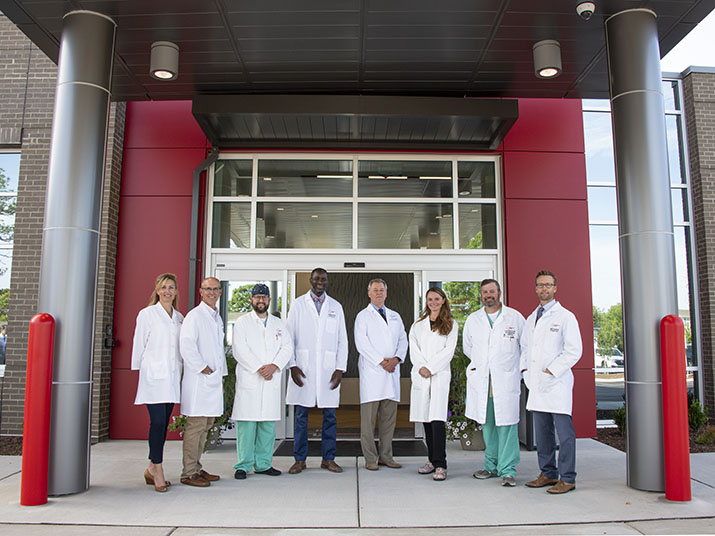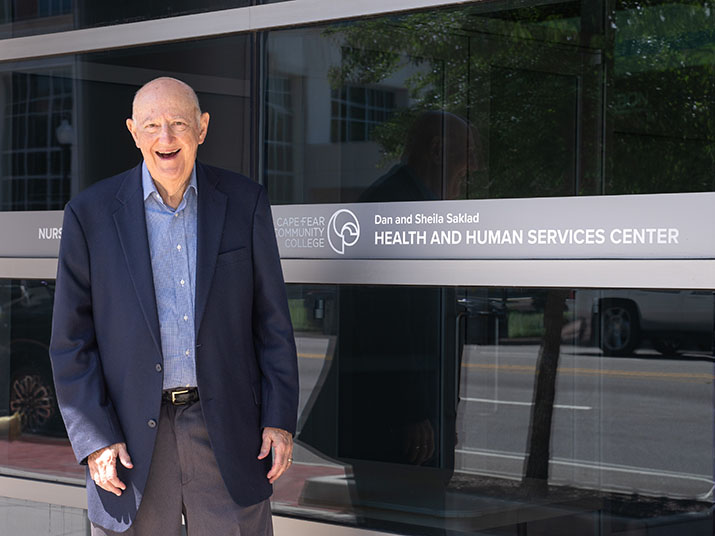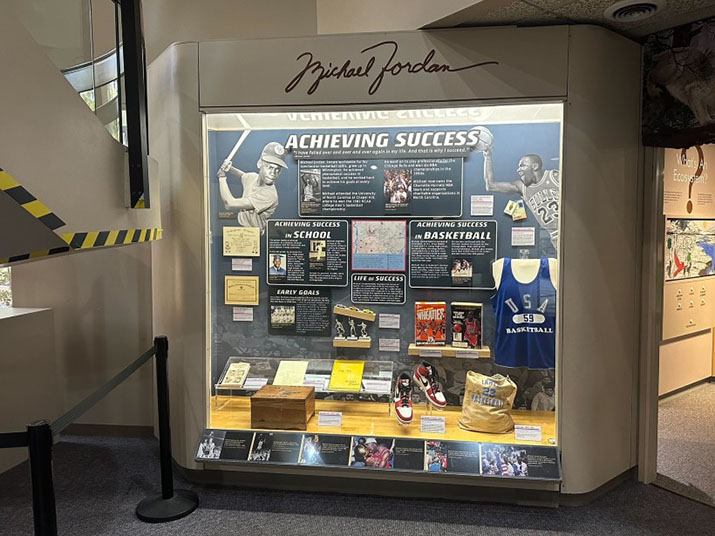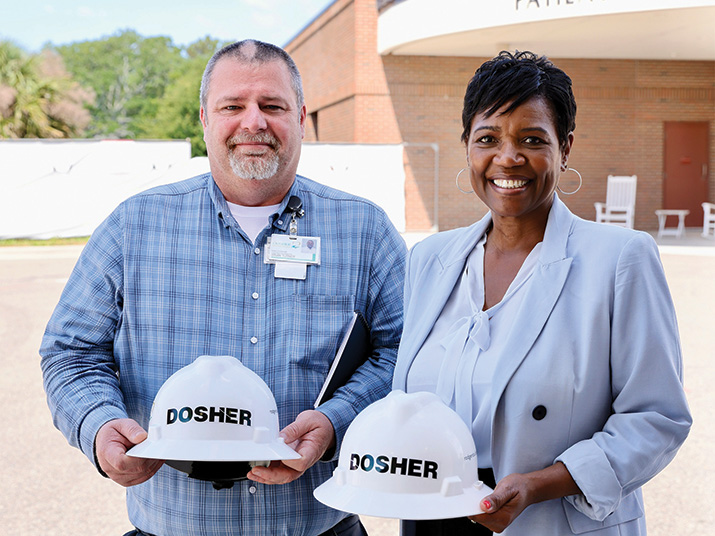Novant cuts innovation lab project, including at NHRMC
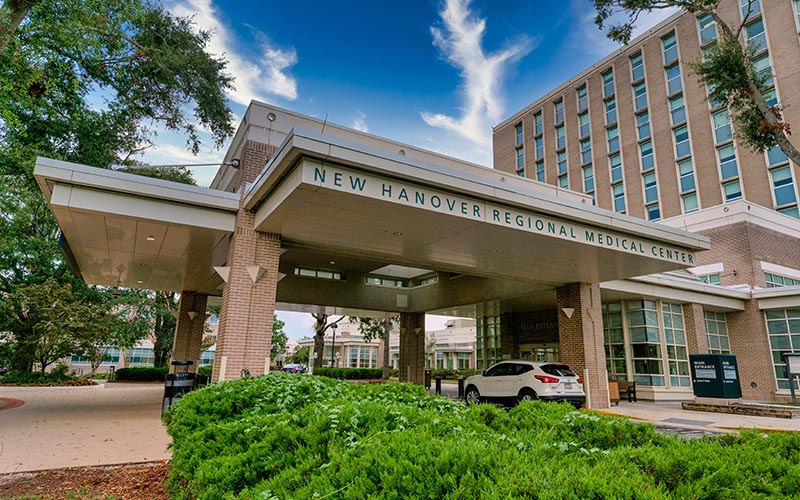
Novant Health has scrapped plans to add an Innovation Lab to the Novant Health New Hanover Regional Medical Center campus on South 17th Street. (File photo)
Novant Health’s decision to cut a systemwide project focusing on health care innovation also means the end for a Wilmington project.
Novant launched a Health Innovation Lab in Charlotte last year headed by Paula Kranz. Kranz posted in recent days on social media about the notice to close the Innovation Lab project, laying off her and the team working on it “among dozens of others impacted by the fiscal austerity that healthcare companies are facing right now.” She also shared the news of Novant being included in this year’s America’s Most Innovative Companies list from Fortune and lauding the project’s efforts over the past year.
The closure also impacts Wilmington, according to officials with Novant, the Winston-Salem-based health system that bought New Hanover Regional Medical Center two years ago.
“At this time, we are no longer planning to open a physical Innovation Lab in Wilmington as we reevaluate our investments and strategies in the innovation space,” a Novant spokesperson said this week. “Innovation at Novant Health will continue, however, as we champion our internal culture of curiosity and the broader Wilmington community’s efforts to enable entrepreneurs and innovators.”
Wilmington was one of two other cities outside the Charlotte hub where Novant was rolling out innovation labs, said Jeff Von Horn, a consultant who worked with Noah Walker to head up the local effort.
They said the Wilmington project kicked up in earnest toward the end of last year and was to move into a former bank building at Novant Health New Hanover Regional Medical Center’s main campus on South 17th Street.
“Our five-year goal was to create a center of excellence here in Wilmington, for both semi-simulated medical training and innovation,” Walker said. “Part of that was to connect Wilmington with resources from across North Carolina.”
Von Horn said the team was notified March 29 about the project’s end. He said the current financial pressures on health care systems, felt not just at Novant but also at other hospitals systems across the state and nation, likely fueled the decision.
“It was abrupt, but it was not totally not anticipated,” he said. “We understood that we were a group that was providing value, and we could change the outlook of how health care was delivered by Novant at some point. But at least right now, the budget doesn’t support the effort.”
Other financial decisions included recent cuts beyond the innovation project. The Charlotte Business Journal reported about Novant job cuts last week that impacted 50 positions, including Kranz, who served as vice president of innovation enablement and executive director of Novant Health Innovation Labs, but also other executive positions including the health system’s executive vice president and chief consumer officer and chief transformation and digital officer.
Locally, there were four “nonpatient facing roles” cut, and those were not executive roles, according to a Novant spokesperson. Novant officials did not say whether those four positions included the local innovation team members. Von Horn and Walker said they were contract employees.
More than 7,000 people work for Novant Health NHRMC, the area’s largest employer.
In January, physician Philip Brown, who was based locally but served in a system executive role, was laid off as part of systemwide cuts.
Von Horn said the innovation initiative operated in part from a Duke endowment grant, funds from the Novant Health Foundation as well as outside sources.
"It was always very well understood that our mission was to increase access, promote health equity along with improving clinical hiring training and retention. Mathew Floyd in our Charlotte lab had created a portal for healthtech companies that wanted to do business with Novant as sort of an accelerator. The labs were also a place where physicians and clinical departments within Novant could go to preview new technology as it became available." Von Horn said. "It was our hope that those activities would reduce costs to patients, improve health care outcomes and make it all of it more accessible. That was our mission broadly defined.”
This was not the first time New Hanover Regional had focused on an innovation office.
In 2019, NHRMC – then still owned by New Hanover County – started an Innovation Center headed up by tech entrepreneur Chris Hillier. Walker worked with Hillier on it, researching a couple of projects. The pandemic’s arrival, however, shifted the focus to researching best practices and finding out what other health systems were doing to address the rapidly changing conditions. Hillier moved away during the pandemic, and talk of a decided innovation space went away until the Novant launch.
“And I understand that there’s budgetary pressure. It’s the reality of our world,” Von Horn said. “I believe they will reconstitute it. I think they [Novant] did think it was important, but I think they’re also just trying to be responsible stewards to the community in the way that they could.”
Parts of the local team’s work, Walker said, might still carry on, including some of the community engagement projects and a therapeutic wellness platform to address potential burnout for employees. Walker pointed to a patient education platform using 3-D printing that he worked on as an example of a tool he hopes continues to be developed.
“I’m not quite sure where the chips will fall,” he said. “I’m hopeful that that some of these will continue on. I believe that, hopefully, the simulation lab will move forward, maybe without the innovation piece attached. I think the initiatives carry forward, and I am hopeful that some of this work will continue.”



